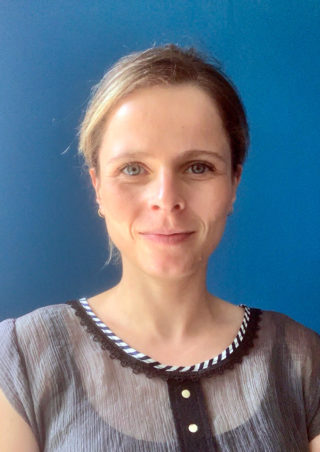
Alina Leikin is Special Counsel in EDO’s Safe Climate team. Alina works on addressing the impacts of gas developments across Australia on global warming, and utilising corporations and commercial law to hold fossil fuel companies to account in relation to the risks posed by climate change.
I came to the EDO from a human rights background. I’d previously worked on a range of issues from socio-economic rights to the rights of people in prison. I had also worked in the Northern Territory, managing the Legal Aid Commission’s remote outreach program and travelling to remote Aboriginal communities around the Northern Territory to provide civil law services.
After a few years back in Melbourne, I felt drawn back to the Northern Territory. I also knew I wanted to work for an organisation that was bold, strategic and impactful. When the opportunity arose to join the EDO and work on stopping the harmful impacts of the expansion of gas projects in the Northern Territory, I thought it would be a perfect fit. And, it really has been. I am thrilled to be working in an organisation that is courageous and also deeply thoughtful about how it treats staff, clients and partners. It’s a huge privilege to be part of the EDO team.
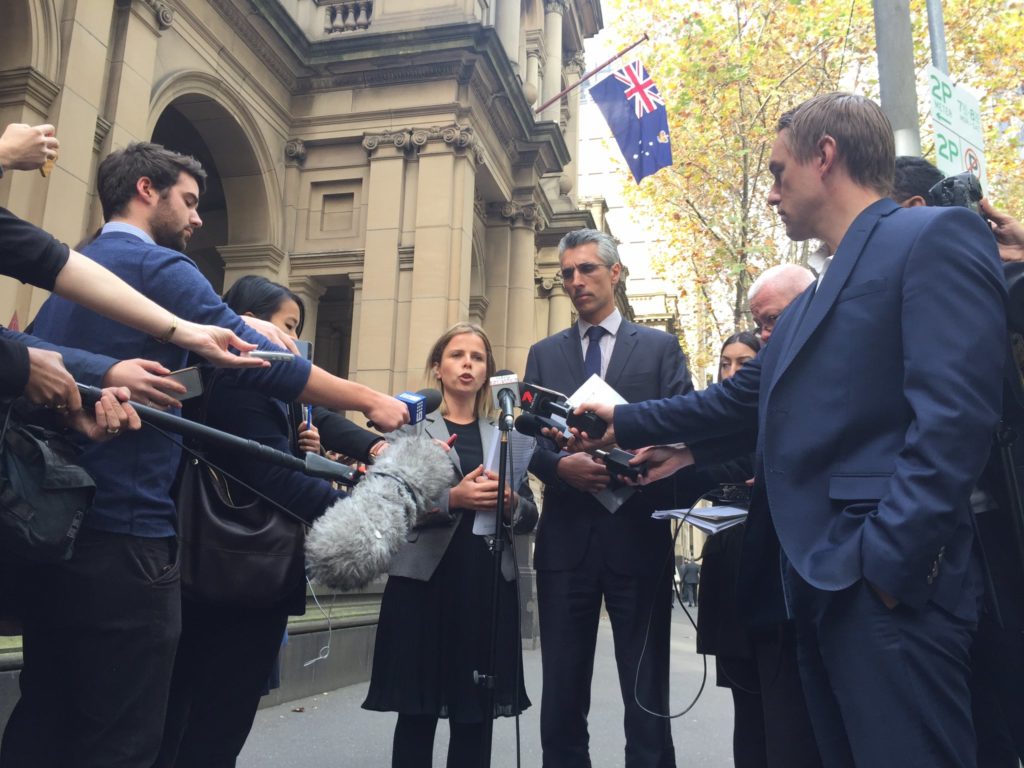
What motivates you and what challenges you the most about your work in the Safe Climate (Gas & Corporate) team?
In the Northern Territory, there is so much work to be done opposing the impacts of new gas development and expansion. There is a frightening volume of proposed new development, including the Barossa offshore gas field, the Beetaloo Basin and infrastructure in Darwin harbour, including dangerous petrochemical industry. The push to extract gas in the Northern Territory is combined with poor regulatory frameworks, which result in less rigorous environmental assessment and make it easier for fossil fuel companies to push through their projects compared with some other jurisdictions.
This makes for big challenges, but even bigger opportunities for legal intervention to prevent the impacts of these projects. The next few years will be make or break for some of the major proposed developments and we know that the EDO’s legal skills can be the difference in ensuring that these climate damaging projects are properly scrutinised.
Our capacity in the Gas team to tackle this work has recently expanded and we are not letting anything through to the keeper. We are firing on all cylinders to challenge approvals, make submissions to inform decision making and inform policy and law reform. We’re working closely with Aboriginal communities and partners in the environmental sector to coordinate our efforts and maximise our impact.
How do you and your team work with communities? What have you learned personally and professionally through a community-led approach?
We have the privilege of working alongside Aboriginal communities in the Northern Territory. Communities know how to protect their country and have done so for tens of thousands of years. We have focused extensively on engaging thoughtfully and sensitively and being led by the aspirations and priorities of Aboriginal clients and communities. For example, in our work on the Tiwi Islands, we have engaged cultural brokers, attended community meetings, worked closely with community elders and done many outreach trips to build trusting relationships.
My colleague Jordina Rust and I had both worked extensively in remote communities in the Northern Territory before starting at the EDO. Jordi especially brought a wealth of experience and an incredibly reflective approach to our work on the Tiwis. Her capacity to translate complex legal concepts in a meaningful way was fundamental to our engagement in the Tiwis.
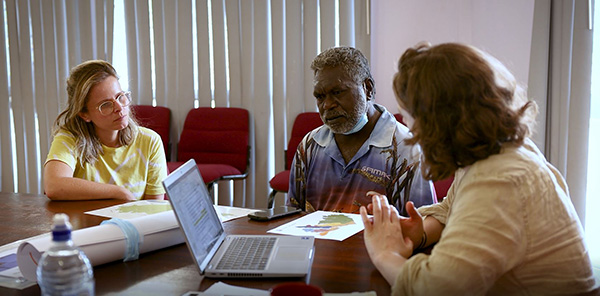 Senior Lawyer Jordina Rust (right) and Alina Leikin (left) in the Tiwi Islands meeting with Tiwi elder Dennis Murphy Tipakalippa to learn firsthand about the impacts of Santos’ drilling plans on Tiwi sea country and culture.
Senior Lawyer Jordina Rust (right) and Alina Leikin (left) in the Tiwi Islands meeting with Tiwi elder Dennis Murphy Tipakalippa to learn firsthand about the impacts of Santos’ drilling plans on Tiwi sea country and culture.
Tell us a bit about your work on the Barossa case – What’s it been like, what’s interesting about the work and why is this case significant?
In the Barossa case, we are acting for Tiwi elder, Dennis Murphy Tipakalippa to challenge the approval of a drilling program in the Barossa gas field, which threatens Tiwi food sources, culture and way of life. Dennis is arguing that Santos failed to consult him and his community about the drilling plans, contrary to legal obligations.
Working on this case has been a true privilege and career highlight – Dennis and the Munupi community have placed their trust in us and have shared so much with us about their culture, traditions, sacred stories and connection to sea country.
Taking a case to the Federal Court is a huge step for Dennis and his community. It is part of a history of more than 60,000 years of the reciprocal relationships of care between Tiwi people and their country. They are protecting a way of life that has endured for millennia so that future generations can thrive.
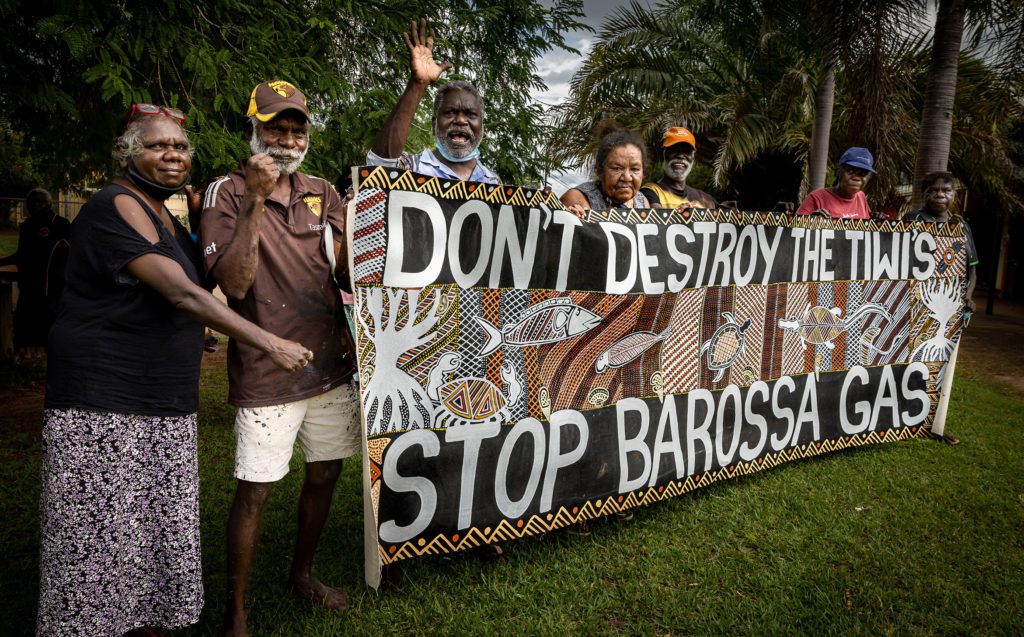
It’s the first time ever in Australia that First Nations people have challenged an offshore project approval because of a lack of consultation. This case could have significant implication for what is considered adequate consultation with First Nations people in relation to offshore gas projects.
Latest Wildlife Updates

Have your say on the draft Land Use Planning and Approvals Amendment (Development Assessment Panels) Bill 2025
Wildlife and water are big winners in settlement of Blue Energy gas project appeal
Submission Template – Crocodile Control and Conservation Bill 2025
Join the EDO network today to help give the environment the defence it deserves.
Take Action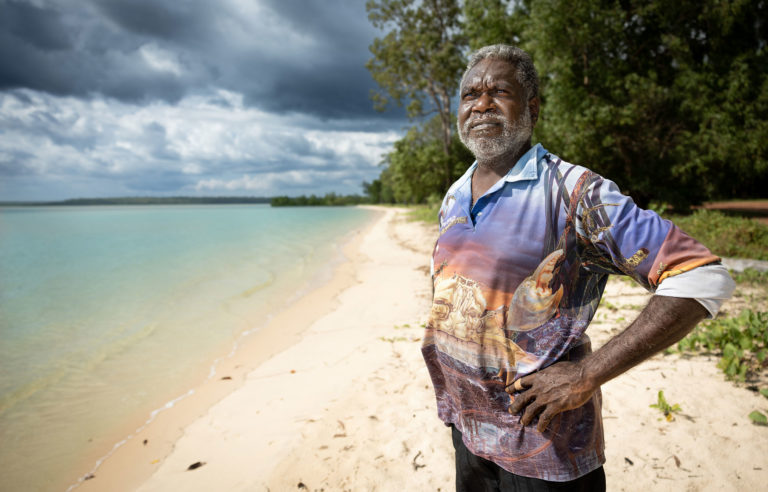
Tiwi Islander sues Santos in legal first
Munupi Senior Lawman and Tiwi Traditional Owner Dennis Tipakalippa is suing Santos and the Federal Government over the approval of plans to drill the Barossa gas field.





